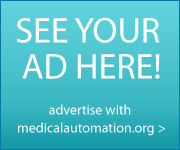Mental Health Drug Discovery: From Probabilistic to Patient Focused Approaches
Mental health issues and substance abuse continues to be an underserved yet high unmet medical need. Based on past and current trends, spending for mental illness treatment is expected to double between 2003 and 2014 from approximately $115B to $230B, and possibly triple by 2024. Prescription sales are anticipated to remain relatively constant at 30-35% of total mental health care spending. CNS targeted medicines have had a significant positive impact on the success of mental health care delivery by containing costs as payers, providers, and patients become more knowledgeable about the success of new treatment options, access to medication and services improves, and support grows for efforts to destigmatize mental illness. Access to mental health services can be greatly improved, especially in remote areas or for patients who are home bound, through effective uses of tele-psychiatry. Prescription compliance is a major concern for many mental illness patients and emerging technology such as home-based automatic dispensaries may help solve this gap, particularly for the growing elderly population. CNS targeted drugs of the future will reduce side effects while maintaining or improving efficacy leading to better compliance and improved patient outcomes. For example, physiologically compatible approaches to modulation of protein function may reduce side effects while improving efficacy. Brain and spine targeted regenerative medicines may allow disease modifying therapies to work synergistically with palliative treatments. Additional investment in mental health drug discovery research and drug delivery services is warranted to speed cost saving innovative medicines to market that will allow patients to remain productive and lead happy healthy lives.
Do you have a Resource to share with the MedicalAutomation.org community?
Submit Conference Abstract 2010 or Conference Abstracts or Resources here >


